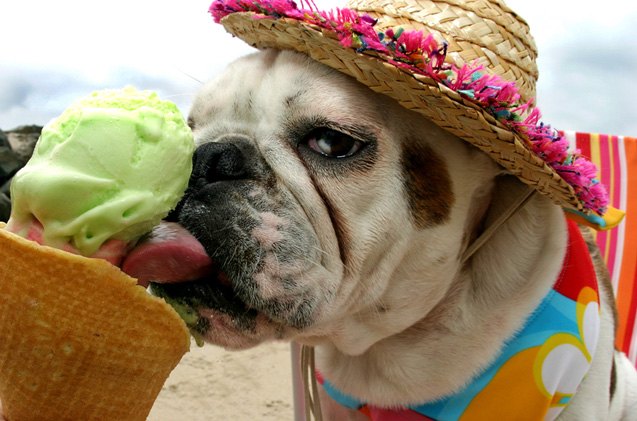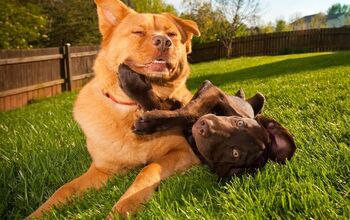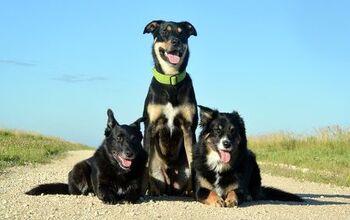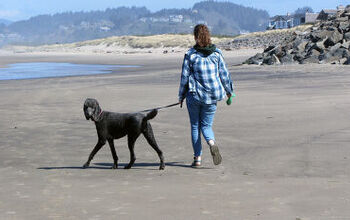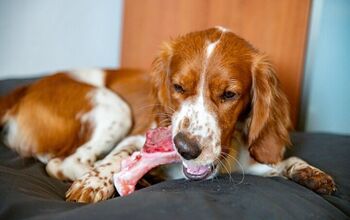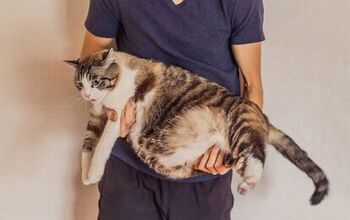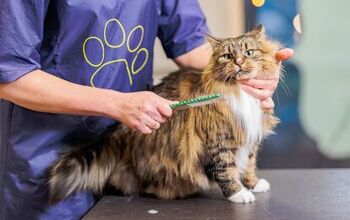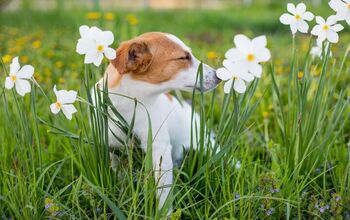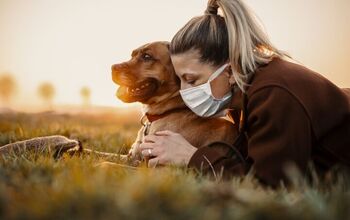5 Cool Ways To Keep Your Pet Safe This Summer

The sun is out, temperatures start to rise and layers of clothes are coming off. While your dog can happily spend a few more hours outside to take advantage of the delightful weather, there are some things you should watch out for. According to Petplan insurance, pets are six percent more likely to visit the vet out of the blue during the summer compared to the rest of the year.
“While many pet owners are relaxing and having some fun in the sun, the summer season is no vacation for pets,” says Petplan staff veterinarian, Dr. Kim Smyth. “There are a number of common summertime hazards that can rain on your pet’s health, which could put a serious damper on your getaway fund and turn a trip to the beach into a trip to the vet.”
Here are some seriously easy (and cool) tips to keep your summer stress-free:
1. Keep Cool
As the temperatures soar, there are various heat-related conditions that can seriously harm your pet, such as heat stroke, heat rash and dehydration. Brachycephalic breeds such as Bulldogs, Boxers and Pugs are twice as likely to visit the vet due to these heat-related conditions compared to non-brachycephalic breeds. Signs include heavy panting, a staggering gait, and lethargy. Never leave your dog inside a hot car and always make sure to keep your pooch hydrated and in the shade as much as possible.
Related: Top 10 Summer Essentials For Your Dog
2. Beware The Buzz
Insects bites have a knack of putting a damper on an otherwise gorgeous summer day, even when it comes to pets. Compared to the rest of the year, pets are twice as likely likely to suffer from an insect bite and bee sting; they account for 25 percent of these incidents. Mild symptoms include swelling and redness, but if your dog has difficulty breathing and is vomiting, they are experiencing anaphylaxis – a serious allergic reaction that needs immediate veterinary attention. Purchase pet-safe insect repellent to protect Fido from these insects and steer clear of places that have a heavy mosquito presence.
3. Keep an Eye on the Barbecue
A whopping 70 percent of all corn cob ingestions occur between the months of June and August. And it’s no wonder – it’s a barbecue staple! Corn cobs can get lodged in a dog’s intestines or stomach if eaten, and sometimes requires surgery in order to remove it. To keep Rover’s stomach cob-free, remember to clear your plates at the end of lunch/dinner and keep trash bags somewhere where your pets cannot reach it.
4. Monitor Your Dog’s Skin Health
The risk of skin infection is 16 percent higher during the summer months in comparison to the rest of the year. Common causes include allergies, humidity, pests (such as fleas), and extra moisture from swimming. Symptoms include itchy, irritated skin or lesions, and watch out for scratching (more than usual), as it could indicate a problem. Should you suspect your dog has an infection or allergic reaction, bring them to your local veterinarian as soon as possible.
Related: 4 Cool Tips On How To Avoid Hot Dogs This Summer
5. Steer Clear of Grapes
Grapes and raisins are toxic to dogs and because it is such a refreshing fruit, it’s often seen during parties (most common in the summer). According to Petplan data, grape and raisin toxicity are 40 percent higher during the summer. The average cost to treat this particular form of poisoning is $756. Signs of grape/raising poisoning include vomiting, increased thirst, and diarrhea. Remember to always clear your plates at the end of supper and never feed your dog anything grape-related (such as oatmeal raisin cookies, wine, etc.), and if they happen to swipe anything from the table, call your local vet.

More by Diana Faria



